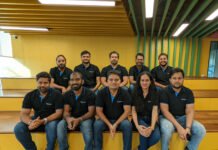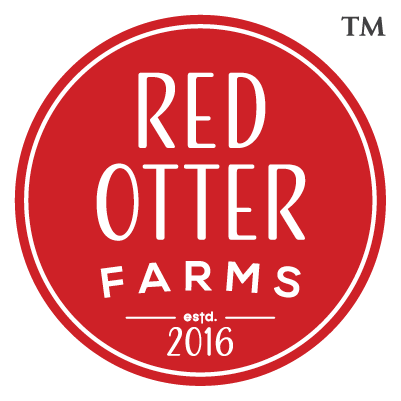
Red Otter Farms was born with an aim to accomplish the two-fold mission of its founders (i.e., to make locally produced, high quality, farm fresh produce easily accessible to the consumers and to find a sustainable solution to farming – for today and tomorrow). They officially launched in September 2016. Commercial operations commenced in July 2017. Their farm is located in Naudha village in Kotabagh block of Nainital, Uttarakhand.
About the founders
There are two founders. Anubhav Das is the CEO. With over twenty years of experience across verticals including design, photography, communication and strategy, Anubhav leads Red Otter Farms – a commercial aquaponics farming company in India.
Co-founder – Srishti Mandaar is President, Plantations Management. With a background in research and a Masters in Development Communication from Delhi University, Srishti leads the operational areas of growth, management and market cohension.
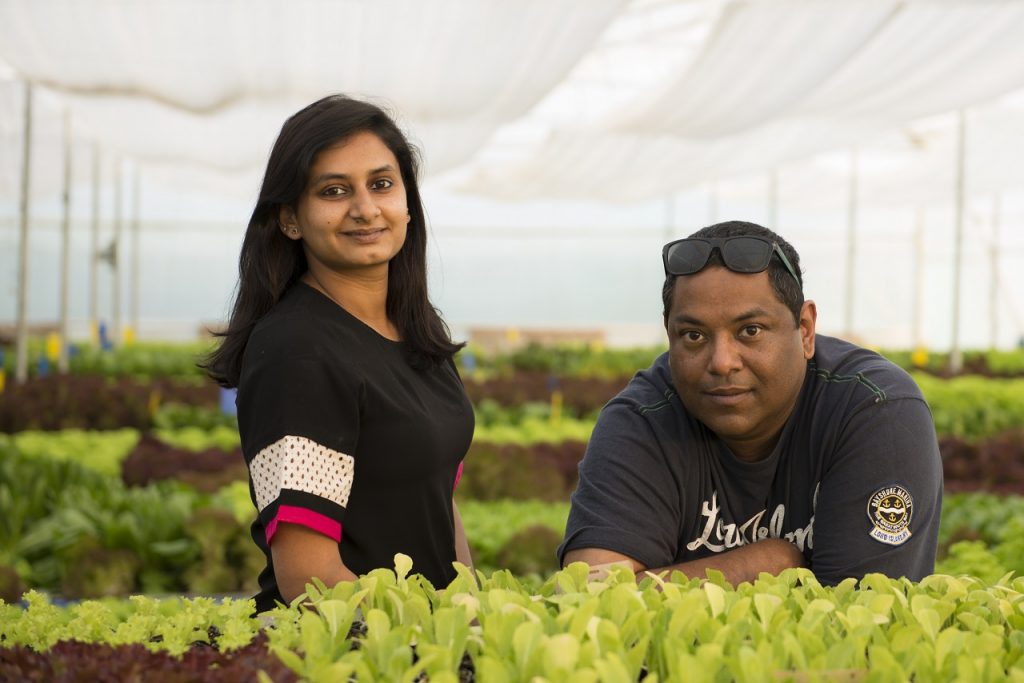
Anubhav and Srishti have been working together for the last six years, first on a project documenting indigenous communities of India and thereafter, at Red Otter Farms. We are publishing an interview of Mr. Anubhav Das.
Q.: What is the problem you are trying to solve?
Ans: For a country that is predominantly agrarian – and employing directly and indirectly – over 60% of its active working population, the lack of a comprehensive vision and innovation in the sector is unfortunate. Our farm output growth rate is fluctuating between .2% and 4.2 % in the last five years. While in quantities of produce, we may be in the top few producers across the world, but our yields per hectare are amongst the lowest.

Take the example of tomatoes. In 2017, India was the second largest producer of tomatoes in the world after China. China produced 56.8 million tonnes of tomatoes on about 110,000 hectares of land. India produced 18.7 million tonnes on about 10% less land. The productivity per hectare is incomparable. And this fact goes across multiple crops.
Additionally, most farming is still rainfall dependent and we use chemical pesticides, insecticides and fertilisers far in excess of what is needed. Over time, it has led to degradation of soil, ruination of ground water and will eventually lead to drastic health issues for our population.
It’s a combination of these issues that we are seeking to address.
Q.: Please tell us about the investors (if any)
Ans: We do not have any investors at the moment. We were focused from the start that we would set up a viable business with a revenue focus. We did that. We are completely bootstrapped.
Q.: Tell us about the Product / Solution. Explain how you went about the Product-Market Fit Process.
Ans: Commercial aquaponics farming is a potential game-changer. Aquaponics brings together aquaculture and hydroponic farming together in a balanced eco-system based approach. Utilising 90% less water and no usage of chemical insecticides, pesticides and fertilisers, it has the advantage of much higher yields of crops.

At Red Otter Farms, we have successfully set up an India-adapted module at a lower cost compared to international systems, and are using technology to manage and scale the farm systems.

In terms of the product-market fit – our focus has been on addressing one pain of two audience categories. First, the hospitality industry has struggled with inconsistent quality and inconsistent delivery of produce. Through our farm systems, we eliminated both. Our produce is of a higher quality as compared to even organic [Indeed, across the world, soilless produce commands a 30-50% premium over certified organic], and we can ensure consistent supplies. Secondly, the users at home – whether sourcing directly or through retailers – are assured of produce that it truly chemical-free.

Q.: What were your assumptions when you entered the market, learnings that you have?
Ans: Having got our production systems right, we were not too concerned about our entry into the market. Given the survey information, we were fairly sure that we would be addressing direct pain points and therefore less concerned. We were, of course, worried about whether we would be able to keep our promise of consistency across seasons. Once we convered a cycle, we were fine.
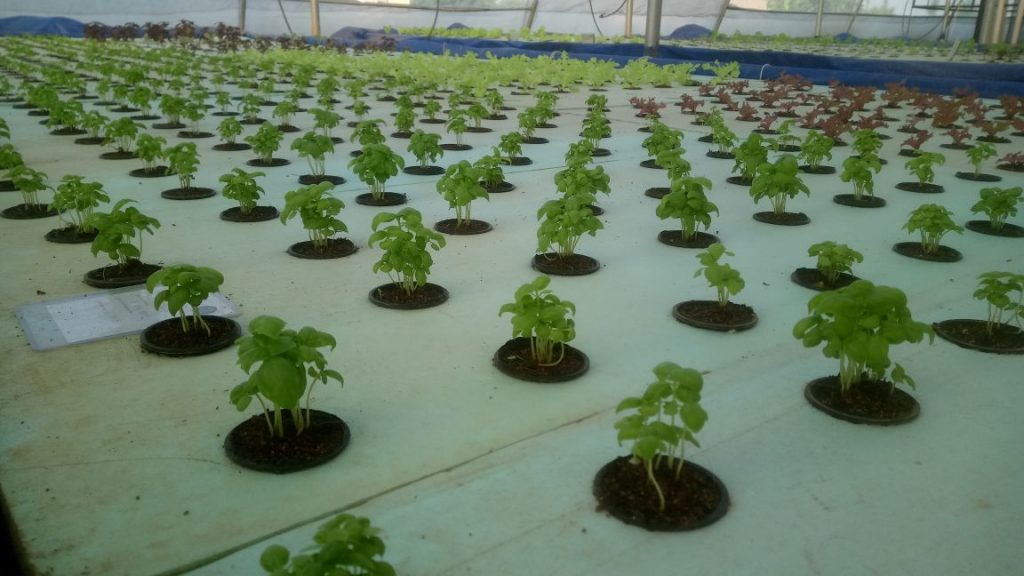
The ideal customer for us is any person who believes they would like an option of clean food. We have worked hard to ensure quality. While our produce does command a premium over conventional farm based chemically-laced produce, we are keeping it at par with organic produce rates. While we are going against the positioning we would enjoy if we just adhered to international norms, we are in this for the long haul. We would much rather have long term committed associations than short ones. We are currently supplying our produce to hotels, retail stores and direct to families in a limited geography.

Q.: How are you pricing the Product? Explain your thought process.
Ans: Our products are priced on the basis of our input costs. Our set up costs are also factored in and therefore our products sell at a ‘premium’ compared to regular, chemical-ridden ones.
Q.: How did you get your first customer?
Ans: With our farms set in Naudha, near Corbett, we approached the Taj hotel at Ramnagar. Our founder, Anubhav, walked in with a few bags of our lettuce, leaves and microgreens. The Executive Chef was surprised that we were locally growing these varieties that they got from very far away. When Anubhav offered them the produce weekly, that sealed the deal.
Q.: What is the big picture of your startup?
Ans: We are on a mission to replace the chemical food on our plates with fresh, clean food.
Q.: What is the insight that you have about this market, which no one else has? Uniqueness about your Startup.
Ans: In all our interactions with clients, stakeholders etc., one fact has come across absolutely clearly. People are worried about the chemicals in their food. And they are worried about the health toll it will take. And in their own way, they are trying every trick they can to protect themselves.
We believe that this opens up the customers for being cheated. And we are keen to ensure it doesn’t happen. We are certain that we want to be honest to ourselves and to our customers.
Q.: List all the names of the core Team Members, along with their Designated Roles.
Ans: Anubhav Das and Srishti Mandaar are already mentioned. Pramod Emjay leads logistics and market interface for the company. Dr. Ravindra Bargali is our resident plantation specialist. Amit Bhola is the projects specialist.
Q.: What would be your goal to accomplish in the next six months?
Ans: We are in the process of expanding our facility. We hope to quadruple our current capacity by then. And we hope that we would have established our customer relationships by then to function at full capacity.
Q.: What message do you want to convey to fellow entrepreneurs?
Ans: There are two messages that I would like to convey. The first is that in the journey of an entrepreneur, there are no shortcuts. You must take the time to understand customer and product or service nuances. You cannot rush solutions if you are playing the long game.
Secondly, in today’s age of investors and investments, I keep hearing the words MVP or minimum viable product. For serious investors, that is a misnomer. An investor is unlikely to take you seriously when he knows you are running a short cut path. So dig your heels in, stay the course, be patient. It works out in the end.
———————
Thanks Anubhav. Best wishes.

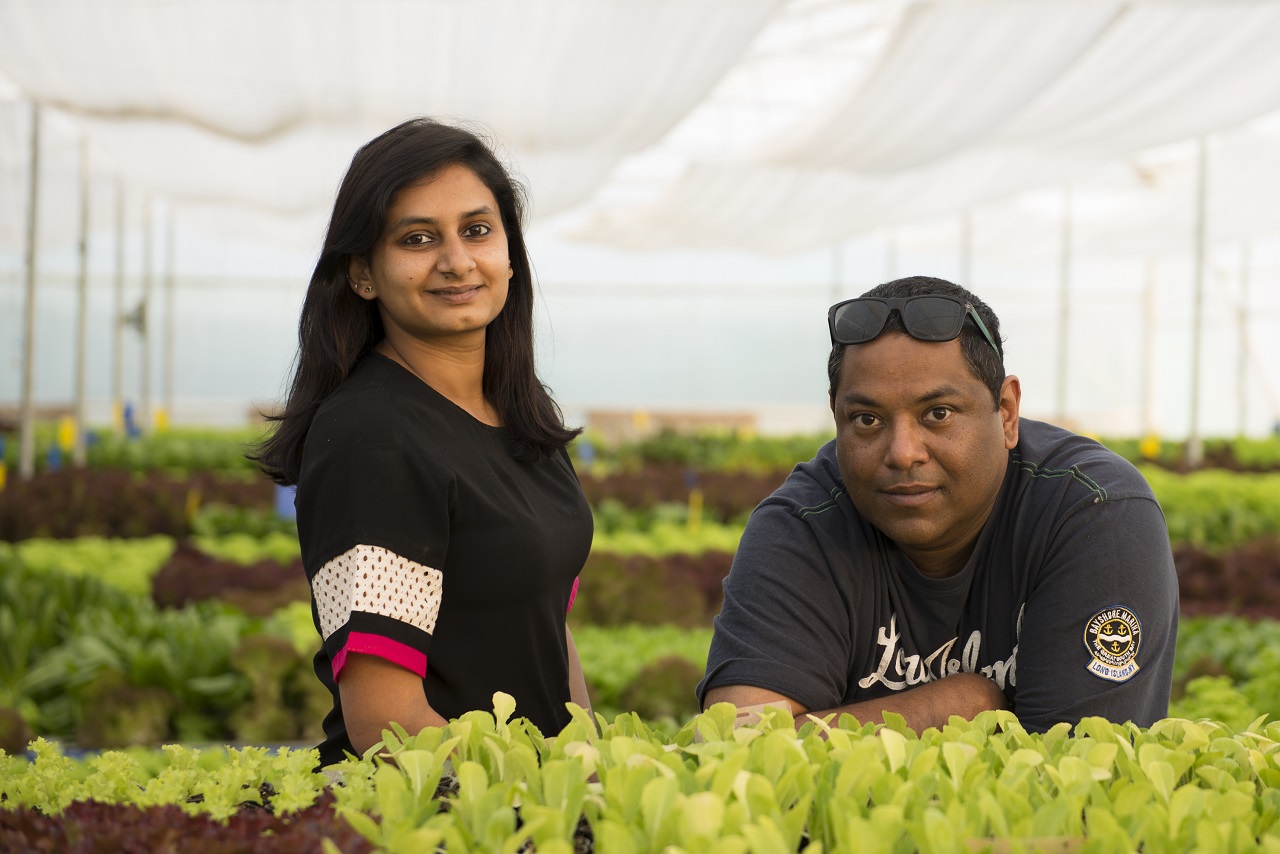

![How This Jaipur-Based Agritech Startup is Bridging the Gap with Innovative Farming Tools [ L to R ] - Shubham Bajaj and Rohit Bajaj, Co Founders - Balwaan Krishi](https://startupsuccessstories.in/wp-content/uploads/2024/10/L-to-R-Shubham-Bajaj-and-Rohit-Bajaj-Co-Founders-Balwaan-Krishi-218x150.jpeg)


